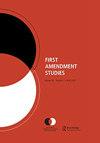理解Williams Yulee诉佛罗里达律师协会案及其对司法选举中言论自由的影响
Q2 Social Sciences
引用次数: 0
摘要
本文讨论了美国最高法院2015年对Williams-Yulee诉佛罗里达律师协会案的判决及其对司法候选人言论和司法选举的潜在影响。本文部分基于对威廉姆斯-尤利案之前和之后裁决的涉及司法候选人言论限制的案件的调查,认为威廉姆斯-尤利案通过削弱怀特对司法候选人言论规定的严格审查测试,有效地推翻了法院早先在明尼苏达州共和党诉怀特案中的裁决。具体来说,威廉姆斯-尤利削弱了怀特的严格审查版本,取消了政府证明其言论管制政策在实现其目标方面的有效性的要求,并采用了一种更宽容的包容性分析形式。这种较弱版本的严格审查可能会促进政府干预司法选举期间的公共教育过程,这一过程会影响公民参与选举的倾向,以及他们对希望任命谁担任法官做出明智判断的能力。本文章由计算机程序翻译,如有差异,请以英文原文为准。
Understanding Williams-Yulee v. The Florida Bar and its implications for freedom of speech in judicial elections
ABSTRACT This article discusses the US Supreme Court’s 2015 decision in Williams-Yulee v. The Florida Bar and its potential implications for judicial candidate speech and judicial elections. Based in part on a survey of cases involving restrictions on judicial candidate speech decided before and after Williams-Yulee, the article argues that Williams-Yulee effectively overruled the Court’s earlier decision in Republican Party of Minnesota v. White, by weakening the strict scrutiny test that White applied to judicial candidate speech regulations. Specifically, Williams-Yulee weakened White’s version of strict scrutiny by removing the demand that the government demonstrate the effectiveness of its speech-regulating policies in achieving its goals, and by embracing a more permissive form of inclusivity analysis. This weaker version of strict scrutiny could facilitate government interference in the public education process that occurs during judicial elections, which is a process that affects citizens’ propensities to participate in elections, and their ability to make informed judgments about whom they want to put on the bench.
求助全文
通过发布文献求助,成功后即可免费获取论文全文。
去求助
来源期刊

First Amendment Studies
Social Sciences-Law
自引率
0.00%
发文量
0
期刊介绍:
First Amendment Studies publishes original scholarship on all aspects of free speech and embraces the full range of critical, historical, empirical, and descriptive methodologies. First Amendment Studies welcomes scholarship addressing areas including but not limited to: • doctrinal analysis of international and national free speech law and legislation • rhetorical analysis of cases and judicial rhetoric • theoretical and cultural issues related to free speech • the role of free speech in a wide variety of contexts (e.g., organizations, popular culture, traditional and new media).
 求助内容:
求助内容: 应助结果提醒方式:
应助结果提醒方式:


